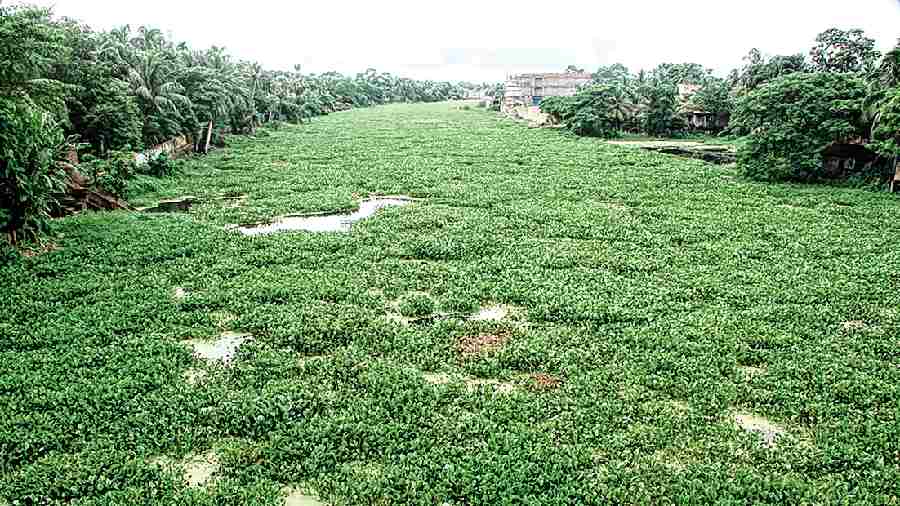Large-scale pollution of the Ichhamati river, caused by a variety of factors, has ruined livelihoods and led to the migration of many people from places along the course of the river, people from the areas and environment activists said at a conference on Tuesday.
The Ichhamati river has shrunk, its depth has reduced and fish have become hard to spot.
Bishnupada Mridha, a resident of Hingalganj in North 24-Parganas, spoke about the troubles of people whose livelihood depended on the river.
“Pollution has reduced the number of fish in the river. Some fish are no longer found in the river. This has put fishermen in immense distress,” said Mridha.
“These people have migrated to the city and to other states. In most cases, they eke out a living working as casual labourers.”
Mridha said many women in villages in his area had been trafficked. The lack of income opportunities was exploited by a nexus of people who duped the women and took them to other states with the promise of jobs.
“Some of the women have not returned home since,” he said.
The Icchamati is stagnating on several stretches because of industrial effluents flowing into the water, pesticides and chemical fertilisers used in agricultural fields making their way into the river and dumping of huge volumes of plastic waste into the water, said an environmental activist.
The conference on the state of the river, held at the US consulate in Kolkata, was the culmination of a year-long project by NGOs Asian Confluence and Sreema Mahila Samity.
The organisations have spoken with hundreds of people who live close to the river and asked them how they like to see the Icchamati.
The Ichhamati river flows through Nadia, and North and South 24-Parganas before entering Bangladesh, said Prithviraj Nath, a senior fellow at Asian Confluence.
“Some of the residents told us they want more water in the river, they want to swim in the river,” said Nath.
The NGOs learnt from their interactions with the residents that religious activities and dumping of plastic waste are among the major causes of pollution in the river.
While warning about the devastating effects of plastic pollution, Adrian Pratt, public affairs officer at the US consulate, said “plastic goes into everything, including being consumed by animals. Plastics goes into water, soil and we have to be careful about its disposal”.
